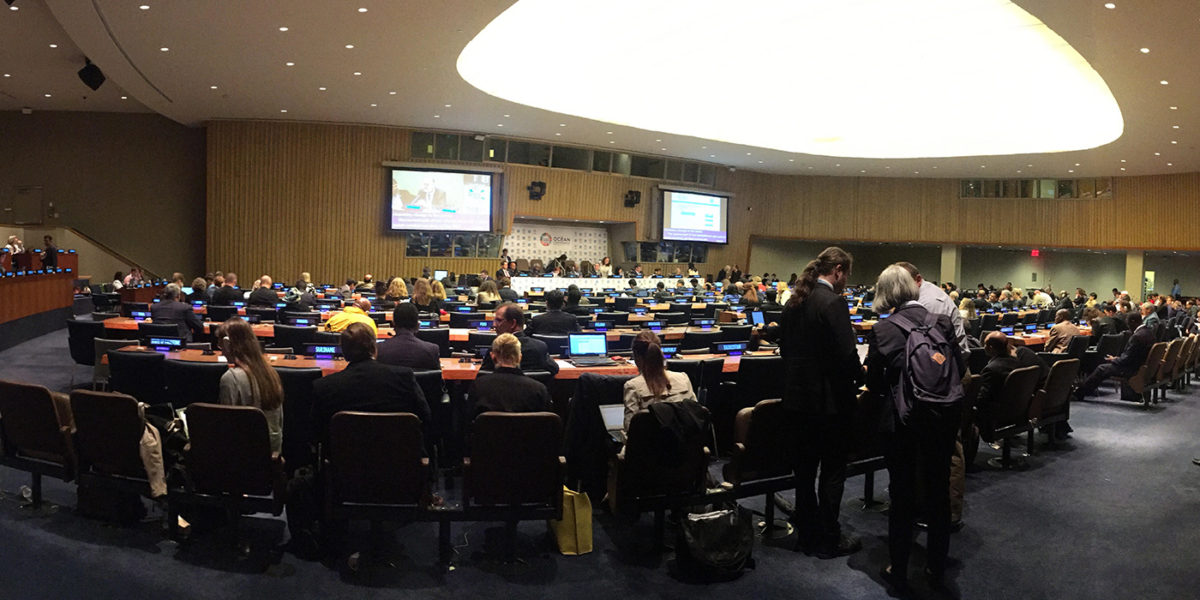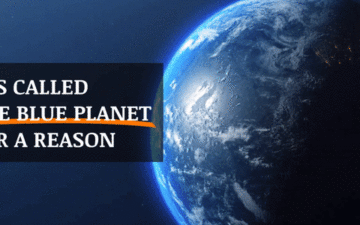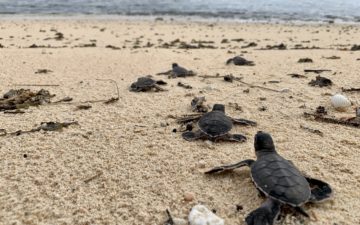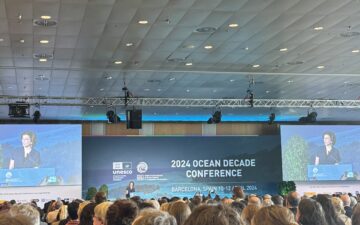The UN SDG14 Ocean Conference: the first UN conference of its kind on the ocean.
June 8 is World Oceans Day, as designated by the United Nations, and we like to think of June that week as Ocean Week and in fact, the whole of June as World Ocean Month. In 2017, it was truly an ocean week in New York, which was abuzz with ocean lovers attending the first World Ocean Festival on Governor’s Island, or attending the first-ever UN conference of its kind on the ocean.
I was lucky enough to begin the week at our SeaWeb Seafood Summit in Seattle where the annual seafood champions awards were held on Monday evening. I arrived in New York in time to participate in Tuesday’s UN ocean conference events with more than 5000 delegates, and representatives of 193 UN member states. UN Headquarters was jammed—hallways, meeting rooms, and even out on the plaza. Chaos reigned, and yet, it was both exhilarating and productive, for the ocean, for The Ocean Foundation (TOF), and for me. I am so grateful for the opportunity to have participated in this landmark event.
UN Headquarters, NYC
This conference was focused on SDG 14, or the Sustainable Development Goal that relates directly to the ocean and the human relationship with it.
The Sustainable Development Goals, including SDG14 are pragmatic, well-drafted and have been signed onto by 194 nations. The SDGs succeeded the Millennium Challenge Goals, which were largely based on the G7 countries telling the rest of the world “what we are going to do for you.” Instead the SDGs are our common goals, written collectively by the global community of nations to focus our collaboration and guide our management objectives. Thus, the goals outlined in SDG14 are long-term and robust strategies to reverse the decline of our one global ocean that is suffering from pollution, acidification, illegal and over- fishing and a general lack of high seas governance. In other words, it is perfectly aligned with the TOF mission.
The Ocean Foundation and the Voluntary Commitments
#OceanAction15877 Building International Capacity to Monitor, Understand, and Act on Ocean Acidification
#OceanAction16542 Enhancing global ocean acidification monitoring and research
#OceanAction18823 Strengthening capacity on ocean acidification monitoring, ecosystem resilience, MPA networks in a changing climate, coral reef protection and marine spatial planning
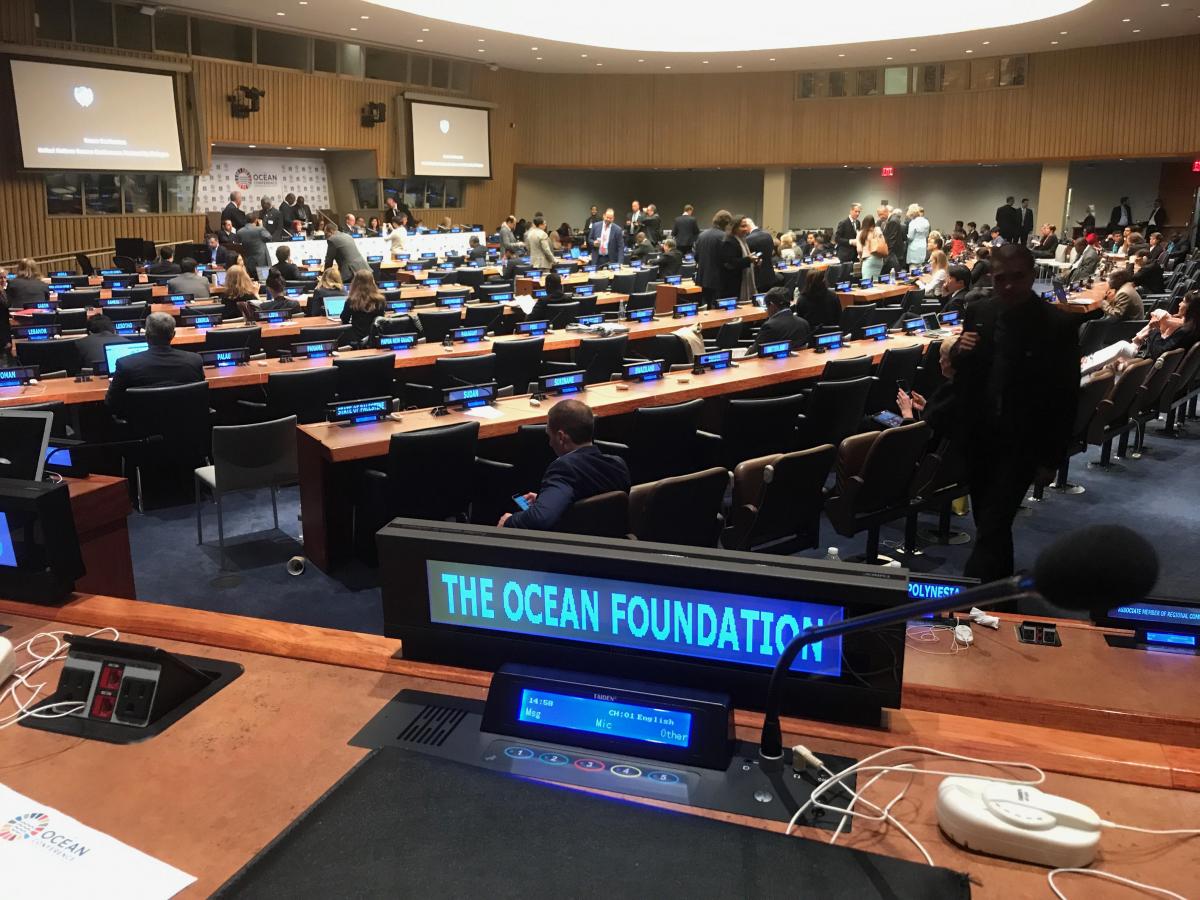
TOF’s seat at the table
The UN SDG 14 Conference was designed to be more than just a gathering, or just an opportunity to share information and strategies. It was intended to provide the opportunity for actual progress in achieving the SDG 14 Goals. Thus, leading up to the conference, nations, multi-lateral institutions, and NGOs had made more than 1,300 voluntary commitments to act, to provide funding, to build capacity, and to transfer technology. The Ocean Foundation was just one of the participants whose commitments were formally announced during the conference.
It might have been enough to attend the sessions and have the exciting hallway meetings with colleagues, partners and friends from Asia, Africa, the Caribbean, Latin America, North America, Oceania and Europe. But I was fortunate to be able to contribute directly through my roles in:
- Speaking on the blue economy side event panel “Capacity for Change: Clusters and the Triple Helix” at the invitation of the San Diego Maritime Alliance and the international BlueTech Cluster Alliance (Canada, France, Ireland, Portugal, Spain, UK, US)
- A formal speaking intervention in “Partnership Dialogue 3 – Minimizing and addressing ocean acidification”
- Speaking on a side event panel at the House of Germany, “Blue Solutions Market Place – Learning from each other’s experiences,” invited by Deutsche Gesellschaft für Internationale Zusammenarbeit (GIZ)
- Speaking at the blue economy side event hosted by TOF and Rockefeller & Co. “The Blue Economy (Perspectives from the private sector)
Together with Rockefeller & Company, we also hosted a reception at The Modern to share our Rockefeller Ocean Strategy (our unprecedented ocean-centric investment portfolio), with our special guest speaker José María Figueres Olsen, former President of Costa Rica, and co-chair of Ocean Unite. For this evening, I was on a panel with Natalia Valtasaari, Head of Investor & Media Relations, for Wärtsilä Corporation and Rolando F. Morillo, VP & Equity Analyst, Rockefeller & Co. to talk about how the private sector investments we are making are part of the new sustainable blue economy and are in support of SDG14.
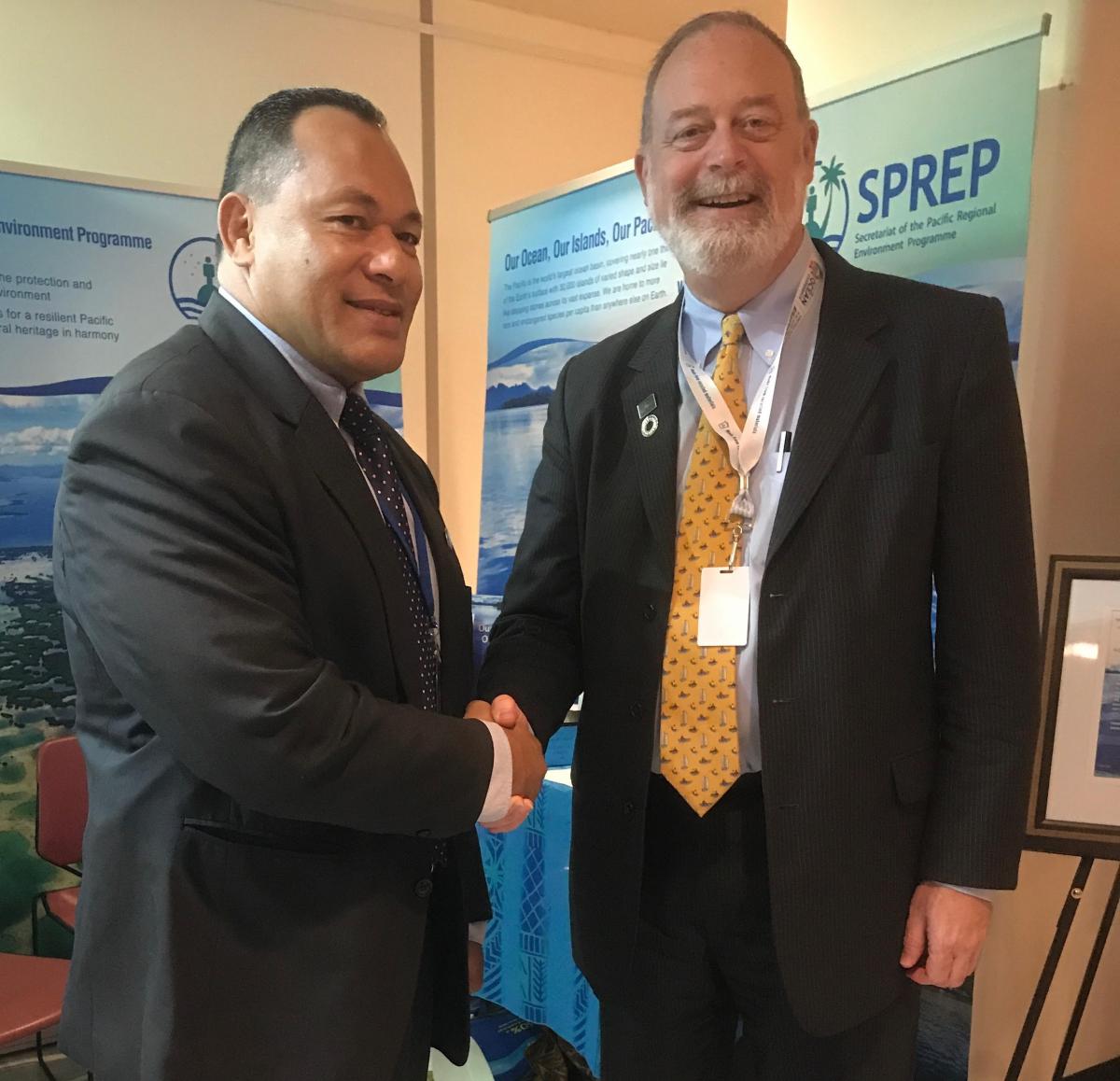
With Mr. Kosi Latu, the Director General of the Secretariat of the Pacific Regional Environment Programme (photo courtesy of SPREP)
TOF Fiscal Projects Program Manager Ben Scheelk and I had formal bi-lateral meetings with New Zealand’s and Sweden’s delegations regarding their support for TOF’s International Ocean Acidification Initiative. I was also able to meet with the Secretariat of the Pacific Regional Environment Programme (SPREP), NOAA, International Atomic Energy Agency’s Ocean Acidification International Coordination Center, and the Western States’ International Ocean Acidification Alliance about our collaboration on ocean acidification capacity building (science or policy) — particularly for developing nations. This envisions:
- Policy capacity building, including legislative template drafting, and legislator peer-to-peer training in how governments can respond to ocean acidification and its effects on coastal economies
- Science capacity building, including peer-to-peer training and full participation in the Global Ocean Acidification Observing Network (GOA-ON)
- Tech transfer (such as our “GOA-ON in a box” lab and field study kits), which enables in-country scientists to monitor ocean acidification once they have received training through our capacity building workshops that have been held or are currently planned for Africa, Pacific Islands, Caribbean/Latin America, and Arctic.
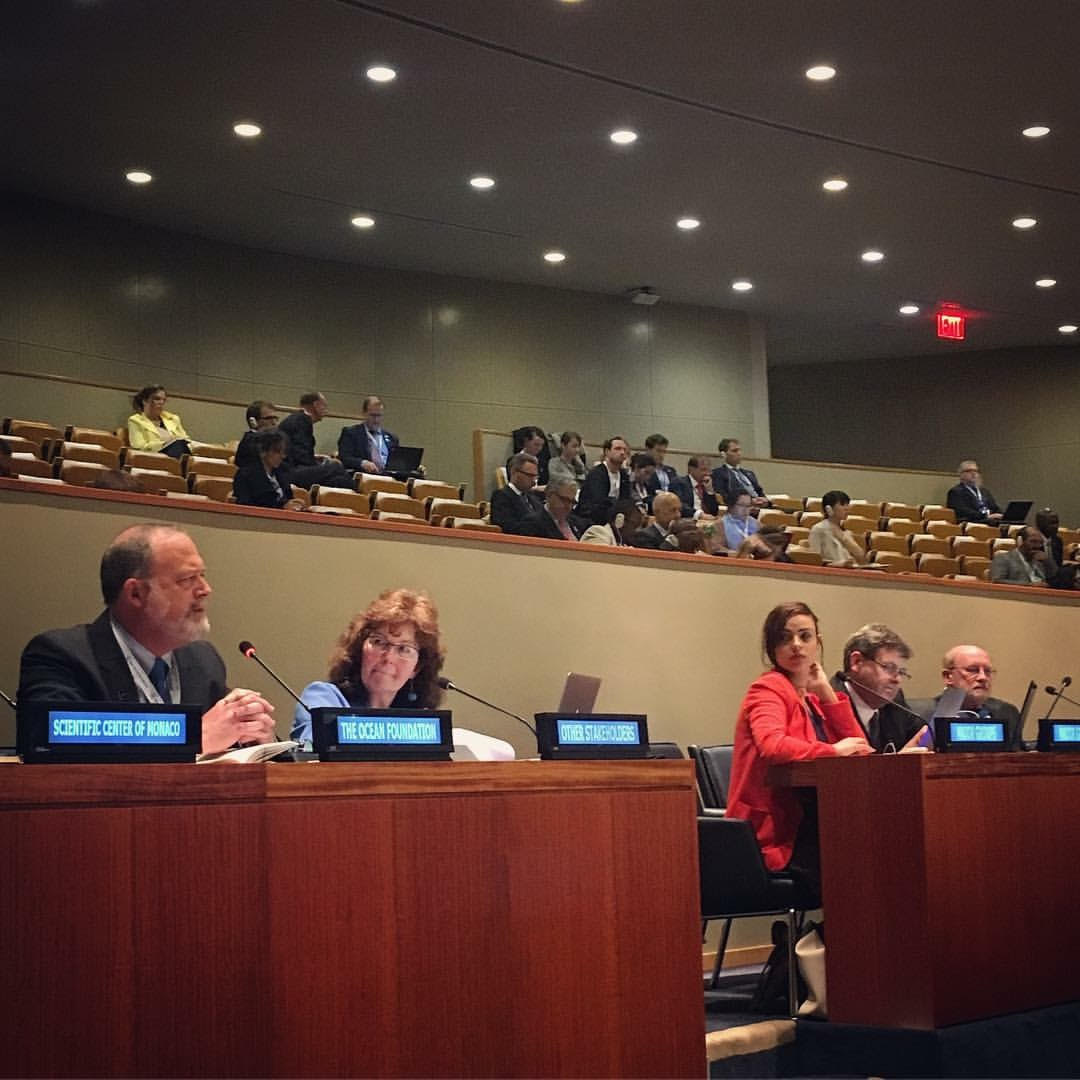
TOF’s formal intervention re addressing ocean acidification
The five-day UN Ocean Conference ended on Friday June 9th. In addition to the 1300+ voluntary commitments, the UN General Assembly agreed on a call for action to “act decisively and urgently” to implement SDG14 and issued the supporting document, “Our ocean, our future: Call for action.” It was a great feeling to be part of a collective step forward after my decades in this field, even if I know that we all need to be part of ensuring that the next steps actually happen.
For The Ocean Foundation, it was certainly the culmination of nearly 15 years of work, that has engaged so many of us. I was very happy to be there representing our community, and to be part of #SavingOurOcean.
